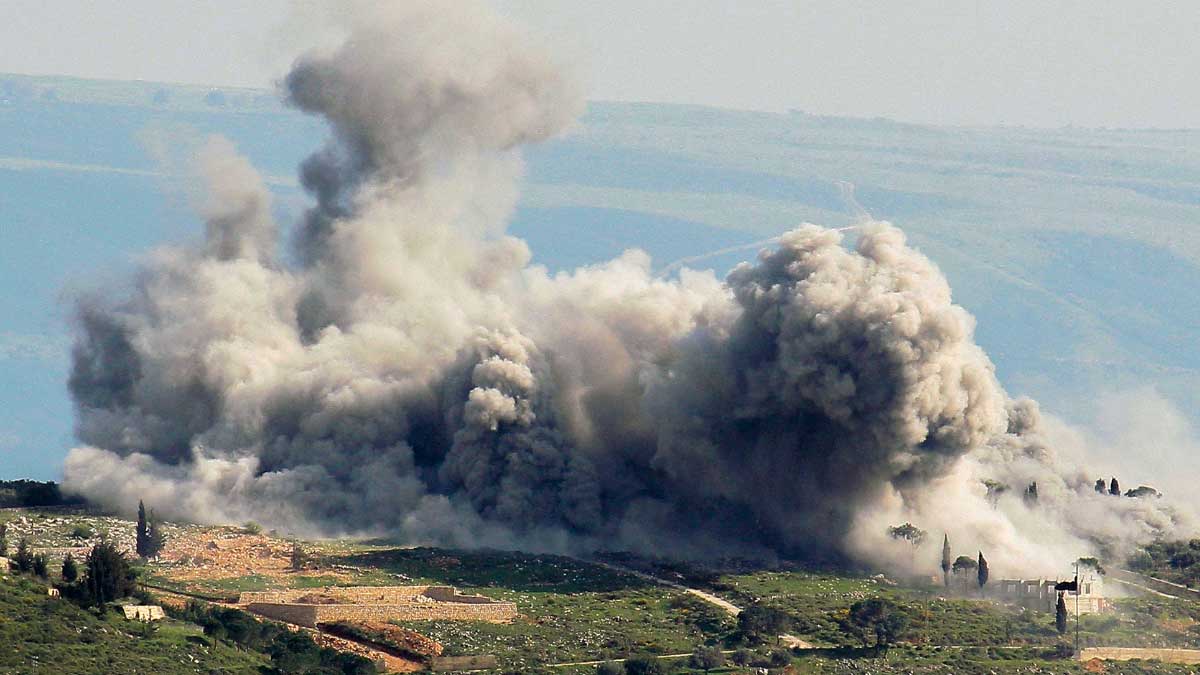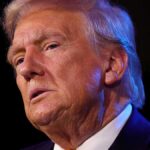- Home
- Billionaires
- Investing Newsletters
- 193CC 1000
- Article Layout 2
- Article Layout 3
- Article Layout 4
- Article Layout 5
- Article Layout 6
- Article Layout 7
- Article Layout 8
- Article Layout 9
- Article Layout 10
- Article Layout 11
- Article Layout 12
- Article Layout 13
- Article Layout 14
- Article Sidebar
- Post Format
- pages
- Archive Layouts
- Post Gallery
- Post Video Background
- Post Review
- Sponsored Post
- Leadership
- Business
- Money
- Small Business
- Innovation
- Shop
Recent Posts
Israel Strikes Beirut, Kills U.S.-Wanted Hezbollah Commander

On Friday, Israel executed what it termed a “targeted strike” in Beirut, Lebanon, resulting in the death of Ibrahim Aqil, a senior commander of the Hezbollah militant group. Aqil was a prominent figure on the U.S. wanted list, implicated in a series of devastating bombings during the 1980s that killed hundreds, including American citizens. While Israeli officials confirmed the death of Aqil, reports emerging from the region suggest that the attack claimed the lives of at least 14 other individuals and left more than 60 injured, raising concerns about civilian casualties in the operation.
The Israel Defense Forces (IDF) stated that the strike specifically targeted a location in the Lebanese capital, marking the first direct aerial assault by Israel on Lebanon since July. Details surrounding the specifics of the attack, such as the method of execution or the broader military strategy, have not been disclosed. The IDF emphasized that Aqil was the primary target of the strike and that his death would represent a significant blow to Hezbollah’s operational capabilities.
In the days leading up to this strike, the IDF reported conducting operations against Hezbollah, which included targeting 30 rocket launchers and dismantling various pieces of what they described as “terrorist infrastructure.” These operations were conducted against the backdrop of heightened tensions following a series of rocket attacks from Hezbollah into northern Israel. On the same day as the airstrike, Hezbollah launched around 140 rockets in retaliation for previous Israeli strikes, escalating an already volatile situation.
The recent violence has had catastrophic effects in Lebanon, where over 40 people have died and more than 3,000 have been injured due to a wave of explosions that began earlier in the week. These blasts, triggered by detonated devices, were reportedly linked to earlier operations targeting Hezbollah operatives. Many believe these explosions were orchestrated by Israel, which has not publicly acknowledged responsibility for the attacks, fueling further animosity between the two sides.
In light of these developments, John Kirby, a spokesperson for the White House National Security Council, made it clear that the U.S. had “no involvement” in the latest Israeli operations. Kirby stressed the need for diplomatic efforts to prevent further escalation in the conflict, reflecting the Biden administration’s concerns about the potential for the violence to spiral out of control. The White House has previously expressed anxiety regarding the conflict’s escalation, underlining the importance of maintaining stability in the region.
Ibrahim Aqil, the target of the Israeli strike, is notorious for his involvement in two significant terrorist attacks that occurred in 1983. At that time, Aqil was affiliated with the Islamic Jihad group, which orchestrated the bombing of the U.S. Embassy in Beirut, killing 63 individuals, and the bombing of a Marine Corps barracks that resulted in the deaths of 241 American service members. Additionally, Aqil was implicated in the kidnapping of American and German hostages during the 1980s, prompting the U.S. State Department to offer a $7 million reward for information leading to his capture.
Hezbollah, a powerful militant organization in Lebanon supported by Iran, has been designated a terrorist group by the U.S. The group has ramped up military operations against Israeli forces following a series of events that began with the Hamas attack on Israel in October, contributing to a significant increase in hostilities in the region. The IDF last conducted strikes in Beirut in July, targeting Fuad Shukr, another key figure within Hezbollah believed to have been involved in deadly attacks.
Israeli officials reportedly informed the U.S. about their intent to carry out operations in Lebanon earlier this week, coinciding with the explosion of detonated devices throughout the country. There are suspicions that Israel might have planted the explosives prior to the attacks, which Hezbollah has condemned as “criminal aggression.” This ongoing cycle of violence raises fears of further conflict, as international observers urge restraint from both sides.
The situation remains precarious, with Hezbollah promising retaliation against Israeli actions and Israel maintaining its focus on dismantling Hezbollah’s military infrastructure. The potential for further escalation looms large, underscoring the fragile state of peace in the region. As diplomatic efforts are deemed increasingly essential, the international community watches closely, wary of a conflict that could spiral into a larger confrontation involving Iran, Hezbollah’s primary supporter, and potentially engage U.S. interests as well.
Recent Posts
Categories
- 193cc Digital Assets2
- 5G1
- Aerospace & Defense46
- AI37
- Arts3
- Banking & Insurance11
- Big Data3
- Billionaires449
- Boats & Planes1
- Business328
- Careers13
- Cars & Bikes76
- CEO Network1
- CFO Network17
- CHRO Network1
- CIO Network1
- Cloud10
- CMO Network18
- Commercial Real Estate7
- Consultant1
- Consumer Tech180
- CxO1
- Cybersecurity68
- Dining1
- Diversity, Equity & Inclusion4
- Education7
- Energy8
- Enterprise Tech29
- Events11
- Fintech1
- Food & Drink2
- Franchises1
- Freelance1
- Future Of Work2
- Games141
- GIG1
- Healthcare78
- Hollywood & Entertainment186
- Houses1
- Innovation42
- Investing2
- Investing Newsletters4
- Leadership65
- Lifestyle11
- Manufacturing1
- Markets20
- Media193
- Mobile phone1
- Money13
- Personal Finance2
- Policy567
- Real Estate1
- Research6
- Retail1
- Retirement1
- Small Business1
- SportsMoney33
- Style & Beauty1
- Success Income1
- Taxes2
- Travel10
- Uncategorized8
- Vices1
- Watches & Jewelry2
- world's billionaires418
Related Articles
Trump Moves $4B Stake in Truth Social Parent, Stock Drops 6%
Donald Trump recently transferred his 57% stake in Trump Media & Technology...
By 193cc Agency CouncilDecember 20, 2024House Rejects Trump-Backed Funding Bill, Shutdown Looms
The U.S. House of Representatives rejected a new government funding bill on...
By 193cc Agency CouncilDecember 20, 2024Trump Named Time’s Person of the Year for Second Time
On Thursday, Time magazine honored Donald Trump as its “Person of the...
By 193cc Agency CouncilDecember 12, 2024Meta Donates $1 Million to Trump’s Inaugural Fund
Meta, the parent company of Facebook and Instagram, has confirmed a $1...
By 193cc Agency CouncilDecember 12, 2024















Leave a comment